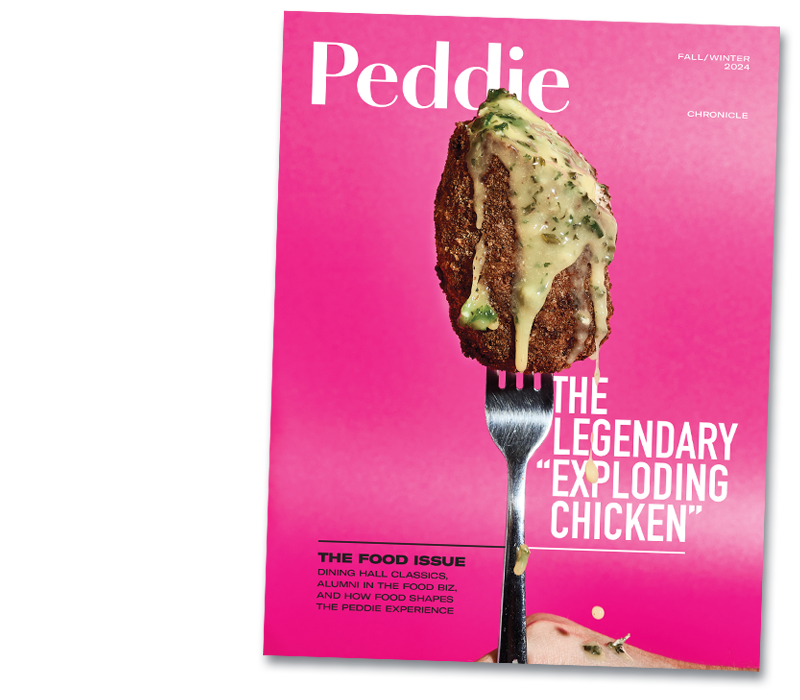Alumni
Cultivating Solutions for Global Food Security
Fred Davies ’67
As a horticulturist and plant biologist, Fred Davies ’67 has spent his career tackling one of the world’s most pressing issues: how to feed an ever-growing population sustainably.
“We’ve got this wicked problem,” Davies explained, referring to the challenge of feeding an additional billion people in the next 13 years. “It’s a problem that you can’t easily solve. A lot of times when you fix one part of the problem, you create other problems you’ve got to deal with.”
Davies’ journey into the world of horticulture began with humble roots in Cranbury, New Jersey, where he and his three younger brothers attended Peddie as day students. As a teenager, Davies worked on local potato farms, gaining practical experience that would later influence his career path. However, it wasn’t until after college, during a year-long backpacking trip around the world with a horticulturist friend, that Davies found his true calling.
“About three months into our travels, we were in Mexico and decided, ‘Hey, let’s start to focus on agriculture and horticulture,’” Davies recalled. This decision led them to visit research centers, farms and plantations worldwide, igniting Davies’ passion for the field.
Throughout his career, Davies has worn many hats. He’s worked on enhancing production systems for the green industry, collaborated with NASA on their “Salad Bowl” program to grow plants in space, and spent over 30 years studying beneficial soil microorganisms. His work has taken him from the high altitudes of Peru to the laboratories of Texas A&M University.
Davies emphasized the critical distinction between food security and nutritional security. “Food security is about having sufficient calories,” he explained, “but nutritional security involves having adequate minerals, micronutrients and vitamins from nutrient-dense fruits, vegetables and protein sources.” He pointed out that “hidden hunger” due to malnutrition and insufficient micronutrients is a significant global problem, leading to issues such as obesity, stunted growth and cognitive impairment.
“Nutritious food should be a universal right,” said Davies. He pointed out that one third of the world’s food is wasted, enough to feed about 2 billion people. “We’re super spoiled,” he said. “We want to have that unblemished fruit, that unblemished vegetable, that perfect shape, which we call No. 1. If it doesn’t make that No. 1 standard, a lot of times it just gets chucked.”
“Nutritious food should be a universal right.”
Davies stressed the importance of “sustainable intensification” — doing more with less. This approach involves finding innovative ways to increase food production while minimizing environmental impact. “We have the ability to do this. It’s not simple, but there are real opportunities,” he said.
Climate change, population growth and deforestation are significant challenges Davies identified in the quest for global food security. However, he remains optimistic about the future, citing technological advancements and innovative approaches like vertical farming, controlled environment agriculture, and even the potential of insect protein.
Davies’ passion for his work is palpable, and his optimism is infectious. “We can live in a dystopian world of winners and losers — or we can live in a world of abundance of water, energy, food — if we have the political will and smart and sustainable policies in place,” he stated.
“There is a food revolution going on,” Davies concluded. “People are interested in eating healthier, tastier – trying new food and recipes. What a great time for producers, chefs, restaurateurs and food delivery!”
